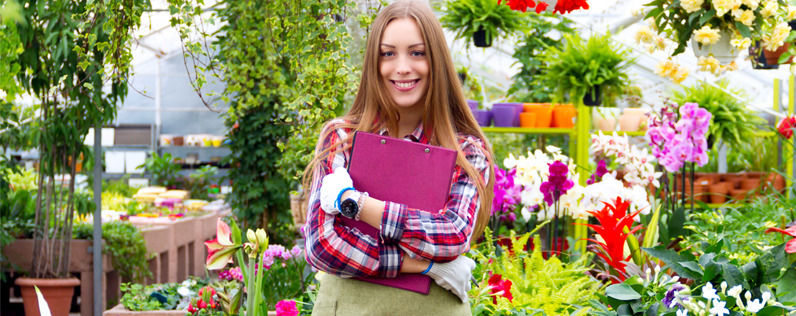From Seed to Flower: Nurturing Your Enthusiasm with Home Gardening for Beginners
Wiki Article
Growing Green Thumbs: a Novice's Journey Into the World of Gardening
Are you excited to obtain your hands filthy and begin expanding your very own yard? Look no more! In this write-up, we'll take you on a beginner's trip right into the globe of horticulture. You'll find out about choosing the right plants, recognizing dirt and garden compost, and important horticulture tools. We'll likewise instruct you watering and fertilizing strategies and how to take care of usual garden bugs. Get all set to grow your green thumb and see your garden grow!Selecting the Right Plants
You need to examine your horticulture space and establish the number of plants that will fit easily. Measure the dimensions of your yard beds or pots and calculate the offered area. Take into consideration the mature size of the plants you plan to expand.Once you have a clear concept of your horticulture space, it's time to select the ideal plants. Think about what you take pleasure in consuming or what flowers you discover most attractive. Take into consideration the climate and sunlight conditions in your area. Specific plants grow completely sun, while others choose partial color. Make note of any kind of microclimates in your garden, such as areas that receive basically sunlight than the remainder. This will certainly aid you pick plants that are suited to your specific conditions.
If you're new to gardening, decide for plants that are easy to expand and need very little upkeep. Pick plants that have a much shorter maturation duration if you live in an area with a shorter growing season.
Understanding Dirt and Compost
Soil is the foundation of your garden, giving nutrients, water retention, and support for your plants. It is important to have a good understanding of your soil type, whether it is sandy, clayey, or loamy, as this will certainly establish the kinds of plants that will grow in your garden. Bear in mind, a abundant and healthy soil is the vital to a successful yard, so take the time to comprehend your soil and integrate garden compost to ensure your plants thrive.
Necessary Gardening Tools
Currently that you comprehend the significance of soil and garden compost, let's check out the vital horticulture tools you'll need to cultivate your green sanctuary. One of one of the most standard tools you'll need is a yard trowel. This little portable device is excellent for excavating tiny holes, transplanting plants, and scooping soil. One more crucial device is a garden fork. This tough tool is utilized for loosening dirt, breaking up clumps, and turning garden compost. A great set of horticulture handwear covers is a must-have to secure your hands from thorns, prickly plants, and dust. Try to find gloves that are durable, breathable, and supply a great grip. A yard tube or watering can is necessary for keeping your plants moistened. Choose a hose with a spray nozzle that permits you to adjust the water flow and stress. A strong set of pruning shears or secateurs is important for trimming and forming your plants. Seek shears with a sharp blade and comfortable manages. Lastly, a yard rake works for leveling soil, getting rid of debris, and spreading out mulch. With these vital devices in your horticulture toolbox, you'll be well-equipped to create and maintain your environment-friendly sanctuary.Watering and Fertilizing Strategies

Taking Care Of Common Garden Vermin
As a newbie gardener, you might come across common garden insects that can ruin your plants. These bugs can range from bugs like beetles, aphids, and caterpillars, to little animals like squirrels and rabbits. It is essential to be able to deal and identify with these parasites efficiently in order to shield your plants and make sure a successful garden.One of the initial steps in handling garden bugs is to routinely evaluate your plants for any type of indications of problem. Try to find chewed fallen leaves, openings in the vegetation, or the existence of tiny insects. If you spot any insects, it is essential to take activity quickly to prevent them from spreading out and causing further damages.
There are several methods you can utilize to control garden bugs. One choice is to use natural killers, such as ladybugs or hoping mantises, to check assist control the population of bugs. You can likewise use physical barriers, such as fences or netting, to keep bigger pets like rabbits out of your garden. Additionally, there are organic bug control sprays available that can help prevent and remove usual yard parasites.
Remember, prevention is crucial when it comes to managing garden bugs. Keeping your garden free and tidy of particles can help in reducing the likelihood of a problem. Regularly eliminating weeds and dead plants can also help remove concealing areas for insects.

Verdict
By picking the right plants, understanding soil and compost, making use of essential horticulture devices, and understanding watering and feeding methods, you have actually established yourself up for success. Do not forget to stay attentive in dealing with typical garden pests to guarantee your plants thrive.Soil is the foundation of your garden, supplying nutrients, water retention, and assistance for your plants. It is crucial to have a great understanding of your soil type, whether it is sandy, clayey, or fertile, as this will figure out the types of plants that will thrive in your garden. Bear in mind, a healthy and balanced and abundant dirt is the key to a successful garden, so take the time to comprehend your soil and incorporate garden compost to guarantee your plants grow.
As a beginner gardener, you may experience common garden insects that can inflict mayhem on your plants. It's crucial to be able to determine and deal with these bugs efficiently in order to secure your plants and ensure a successful garden.
Report this wiki page